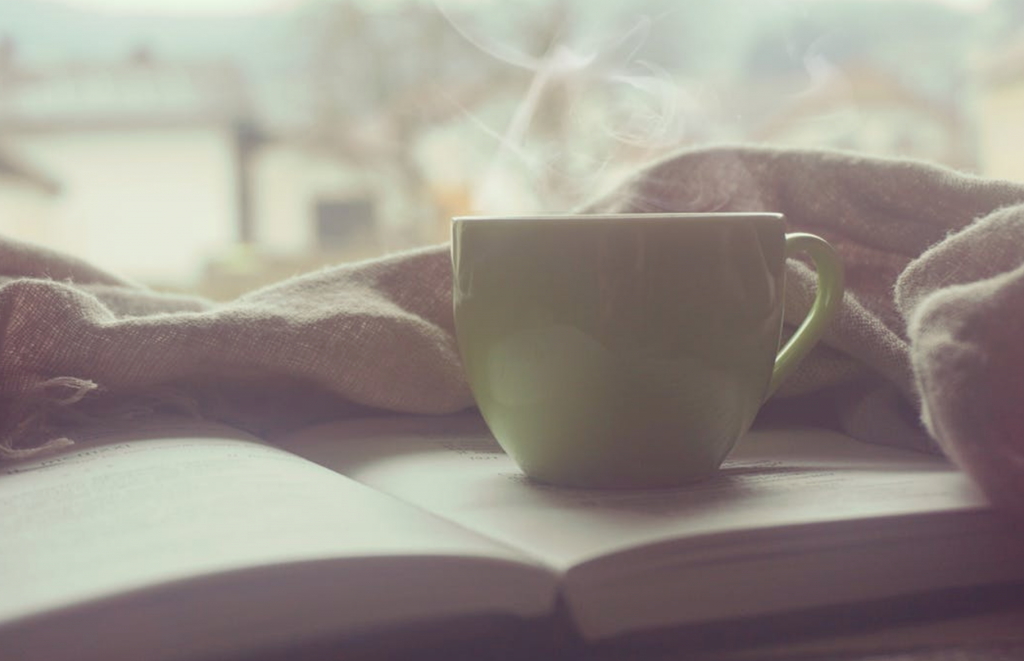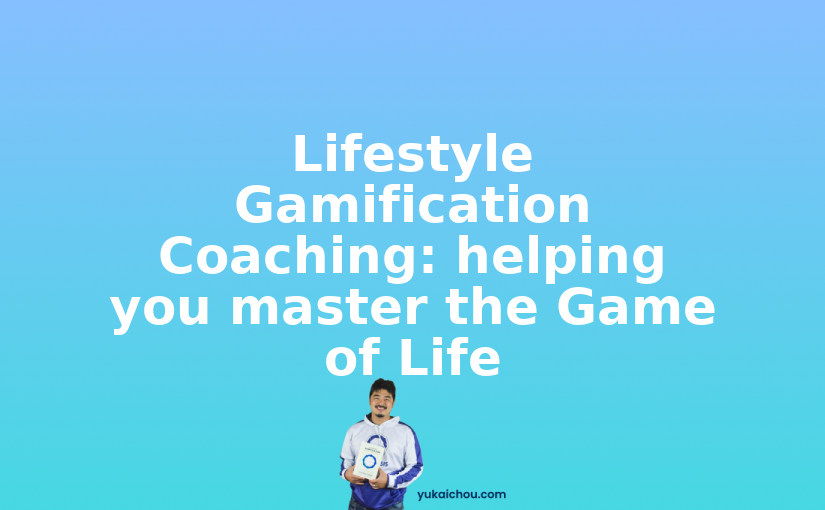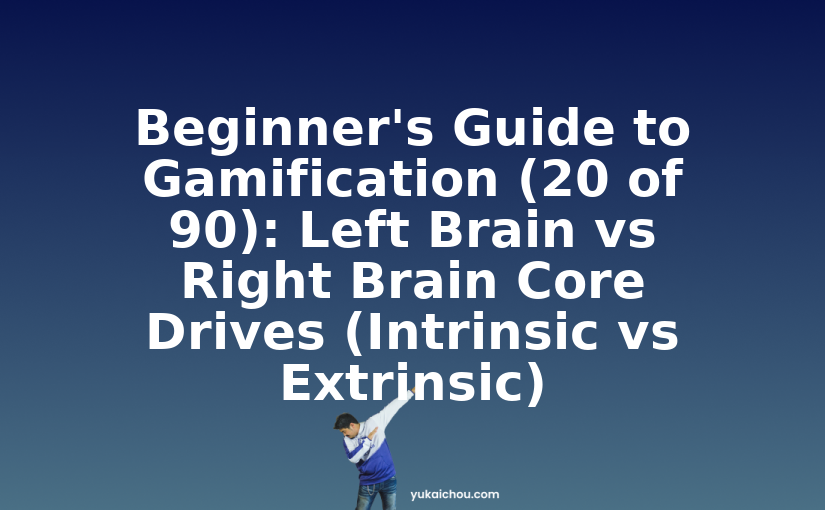This article about getting better sleep was written by Erik van Mechelen, based on the Octalysis framework by Yu-kai Chou.
“I don’t need sleep.” (Starting a grand Protector Quest of your sleep)
Well, you do (I’m assuming you are a homo sapien.)
To do anything at a high level for sustainable periods, the human body will need sleep. And the mind will need rest.
Most of you understand this already, but want to get a little more value from the time you have allotted for sleep. You’re active, you’re busy, but you still like your sleep.
Overall, I like to think of going on a grand Protector Quest to protect my sleep. Strangely, I can feel the difference between a solid 8 and a solid 9 hours of sleep. I bet you can too. And I bet you’ll really feel the difference between a lousy 5 and a solid 7.
No matter your sleep goals (and dreams), let’s see if some Game Techniques based on the Octalysis framework and the 8 Core Drives can help.
Evening Routine, Getting Ready for Sleep
9. Slow down before bedtime
I’m willing to bet large sums of money that Usain Bolt could not fall asleep within 5 minutes of running the 100 meter dash. Any takers?
This is pretty obvious, but I see a lot of people, myself included (guilty as charged!), attempt physiologically similar feats.
We just finished an important work task, or just finished getting the wild kids into bed. (My parents got me into a routine of regularly getting in bed before 8pm because I was excited about reading, I’d get in bed just to see what happened next in my stories. Streaking could be paired with a bedtime strategy for kids.)
Instead of getting straight into bed from the last mentally difficult task, try mindfulness meditation or a slow chat with partner/spouse, or an evening journal or diary entry for 5 minutes. These Mini-quests will serve you well.
8. Music — Create a bedtime playlist
Reducing the sound bombardment of your daily life will help prepare you for sleep. Consider using a Moat to prevent you from engaging in noisy YouTube videos or Snapchat stories before bed.
If you have noisy neighbors, you may have to invest in earplugs.
A simple podcast or soundtrack you’ve curated as a treat to entice you into bed will work as a Carrot, much the same way the books I was excited to read as a kid I mentioned above (this also resembles an Anticipation Parade).
7. Lighting — Soften it
Most humans sleep during the night, do other stuff during the day. I think this has something to do with sun’s light.
As you’re preparing for sleep, give yourself a Head Start by softening your lights and lamps, including the bathroom lights where you brush your teeth. This prepares your brain for sleep with a subconscious cue. (By the way, you will immediately undermine this effort of you look at the bright screen of your smartphone.)
Lowering bathroom lights has the added benefit of preventing you from looking too closely at your appearance. You’re going to bed–you don’t need to look good 🙂
My girlfriend uses a morning light which resembles the rising of the sun to gradually pull her body out of sleep versus a jolt of an alarm.
For complete darkness in bed, try using an eyemask.
6. Thoughts as you drift to dreamland
I normally like to read, but it’s not so often I actually fall asleep with the book on my chest. I reach and turn off my lamp.
Then I am there in bed with my thoughts, wondering if and when I will fall asleep.
The only place I think I make a mistake when going toward sleep is occasionally getting stressed that I can’t fall asleep at the precise moment I wish to. Because I know I need sleep, it can be annoying that the body doesn’t cooperate.
I’ve found the best thing to do is notice these thoughts, quiet the mind, and be okay that I’m not sleeping. In extreme cases, I may get up and read under a soft lamp.
Morning Routine
5. To snooze or not to snooze
If you’re a habitual snoozer, give yourself a Head Start on your past selves (or alternate reality selves) and try just once to get out of bed _with_ your waking device (alarm).
Move your toes, say a daily gratitude, breathe. You are alive and the day will be a day.
Waking up and actually getting up are two very different things. Snoozing doesn’t really count as extra sleep, either; snoozing often feels more like an annoying jolt from short shallow dreams.
4. A reason for getting up
Having something you do will remove the decision of whether to get up or not. Some people have to go to work (Core Drive 8: Loss & Avoidance), while others get to go to work (Core Drive 1: Epic Meaning & Calling), but in the sense of a morning routine, both reasons are objectively similar: the human must move from point A (the bed) to point B (the workplace), even if the commute is only across the apartment to a home office.
3. Breakfast and time with family
I like to take a Mini-quest by helping my girlfriend with a morning smoothie and by carrying her lunch or work bag to her car. This gives us time to chat about how we feel today and what the day has in store, what we plan to do with it.
I usually take the stairs up or take a Quick-stop at the gym for some pupull-ups. Summers, I like to take this moment for a short jog.
Daily Routine
2. Listen to your body, rest when you need to
Sometimes the day gets tiring and you actually have the option to pause to rest. Admittedly, this can feel like a luxury, but at choice times it is the best thing you can do for your mind and body. When I worked at an office, I even went to my car over lunch on one or two occasions because I needed it. Now that I work from home, it’s not unheard of to take a 20-minute rest and put my feet up.
Or…
1. Meditation and mindfulness
When things pile up in my mind, I like to sit on the carpet for a few minutes and practice mindfulness meditation. I’m very new to the practice, so I’m only at the stage where I sit cross-legged and pay attention to my breathing and any itches and pains that arise. So far I’ve only reached about 15 minutes.
Surprisingly, I think this rests the mind. It’s too early to tell for myself, but I’ve heard and read reports of this helping others.
(My test to see if I’m tired is: am I making decisions too slowly, or do I seem indecisive? I then check my last few decisions as a guide.)
What are your sleep-related routines?
We could say more about nutrition, caffeine, and exercise (my brother’s triathlon training puts him right to sleep!), but the best way to find out if you can improve your sleep and sleep routine is to try it!
Give me feedback on what you try and how it goes in the comments. Thanks!













3 responses to “A Protector Quest for Sleep: 9 Game Techniques for More Sleep in the Time You Have”
Oh, man. I love sleep! I dream of sleep! I need it… but don’t get enough of it (not many of us do). I think I generally have a decent routine, however, sometimes I get into a bad cycle. Maybe one night I stay up a bit too late, then the next day my energy and focus is not so good. I know I should go to bed a little early, but since I am tired, I don’t do what is right… instead I get stubborn and stay up. Of course this perpetuates the problem. Eventually, I either do what I should have done the at the beginning, and go to bed earlier (or get a good nap somewhere during the day), or my body sort of forces me to crash early and go to bed, or it get ill (e.g. a cold). Anyway, to me good sleep is as important as good food or good exercise. 🙂
Fantastic article! I am interested about your thoughts about caffeine.
Waking up at the same time every day (on weekends I try to give myself no more than an extra hour). Sometimes this helps me to even wake up a couple of minutes (or even seconds) before the alarm goes off. It sounds like I lose some minutes but quite the contrary, the alarm doesn’t know if I’m in deep sleep or not, but my body seems to know!
I also use apps on desktop and phone to block blue light as the sun goes down, this helps the brain A LOT.
What I’m definitely struggling with, though I know is a dealbreaker, is go-to-sleep constant schedule, and getting solid 8 hours. I find it particularly hard to break off all the things that need to get done.